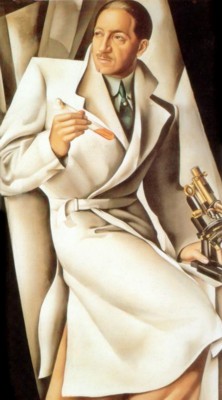


The academic class includes professors, antiquarians/historians, research scientists (the non-inventing kind), authors, doctors, even the occassional priest. Their lives are dominated by the search for knowledge. They all share a common desire to seek out knowledge and learn as much as they can. Some are experts within a particular area of specialty, while others are well-versed in a wide range of expertise.
The academics are not well versed in the arts of combat. Their specialty is obscure knowledge and the application of such information. If you need important details about an obscure historical figure, or the common characteristics of a particular chemical, or even local folklore about a specific location, then consult an academic.
Game Rule Information
Academics have the following game statistics.
Abilities: Intelligence is the prime attribute for the academic in his search for knowledge. Charisma is also important if he wishes to communicate his findings to others. A good Constitution score will help offset the academic's fewer vitality points.
Vitality: 1d4 plus Constitution modifier per level.
Class Skills: The academic class skills, and the key ability for each of them, are as follows: Concentration (Con), Craft (Int), Decipher Script (Int, exclusive skill), Diplomacy (Cha), Gather Information (Cha), Knowledge (any) (Int), Listen (Wis), Profession (Int), Search (Int), Speak Language (Int), Spot (Wis), and Treat Injury (Int).
Skill Points at 1st Level: (8 + Int modifier) x 4.
Skill Points at Each Additional Level: 8 + Int modifier.
Class Features
All of the following are class features of the academic.
Academic Lore: At first level, the academic must select a particular field of study. These fields of study are often academic, scientific, or geographic in scope (i.e. the same as selecting a Knowledge skill). Examples of such fields of study include, but are not limited to, Academic Lore (Roman History), or Academic Lore (Atlantean Mythology), or Academic Lore (Chicago), etc. When dealing with his area of specialty, an academic may make a special Academic Lore check, with a bonus equal to his level + his Intelligence modifier to see if he recalls any relevant information (as supplied by the GM). An academic may select additional fields of study at second level and at every two levels thereafter.
Bonus Feat: An academic gains a bonus feat at 1st level and every six levels thereafter. These bonus feats may only be picked from the following list: Alertness, Fame, Iron Will, Neck Hairs Rise, Persuasive, Run, Sharp-Eyed, Skill Emphasis, Steely Gaze, and Trustworthy.
Weapon Proficiencies: The academic begins play with the Weapon Proficiency (simple) feat.
Bonus Language: At 3rd level and every three levels thereafter, an academic learns a new language from his studies. The academic can both speak and read the new language.
Adaptive Learning: At 5th level, and every six levels thereafter, the Academic gains this ability. This ability works as same as the private eye's class ability.
|
Pulp Heroes, Dungeon & Dragons, Psionics Handbook are trademarks owned by Wizards of the Coast. Pulp Heroes was written by David Noonan. All text on this page is considered Open Game Content.

|
Web Design by Paratime Design |
 |